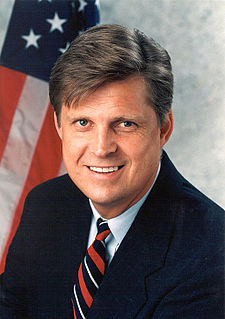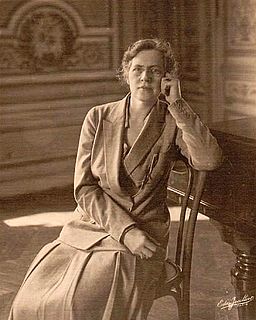A Quote by Ralph Ellison
That which we remember is, more often than not, that which we would like to have been; or that which we hope to be. Thus our memory and our identity are ever at odds; our history ever a tale told by inattentive idealists.
Related Quotes
Now more than ever, as the role of memory in our culture erodes at a faster pace than ever before, we need to cultivate our ability to remember. Our memories make us who we are. They are the seat of our values and source of our character. Competing to see who can memorize more pages of poetry might seem beside the point, but it's about taking a stand against forgetfulness, and embracing primal capacities from which too many of us have became estrangedmemory training is not just for the sake of performing party tricks; it's about nurturing something profoundly and essentially human.
In a world in which we are exposed to more information, more options, more philosophies, more perspectives than ever before, in which we must choose the values by which we will live (rather than unquestioningly follow some tradition for no better reason than that our own parents did), we need to be willing to stand on our own judgment and trust our own intelligence-to look at the world through our own eyes-to chart our course and think through how to achieve the future we want, to commit ourselves to continuous questioning and learning-to be, in a word, self-responsible.
In a world which furnishes so many employments which are useful, and so many which are amusing, it is our own fault if we ever know what ennui [boredom] is, or if we are ever driven to the miserable resource of gaming, which corrupts our dispositions, and teaches us a habit of hostility against all mankind.
Culture has lead us to betray our own aboriginal spirit and wholeness, into an ever-worsening realm of synthetic, isolating, impoverishing estrangement. Which is not to say that there are no more everyday pleasures, without which we would loose our humanness. But as our plight deepens, we glimpse how much must be erased for our redemption.
The shortness of life, which we all discuss, but which is very clear to me at the moment, makes keeping and spreading a joyful peace more crucial than ever before. Let us keep our minds on what matters, which is our work, which is astonishment and gratitude. From this quiet magic comes a power for all other new years wishes to come true.
It is often by a trivial, even an anecdotal decision, that we direct our activities into a certain channel, and thus determine which of the potential expressions of our individuality become manifest. Usually we know nothing of the ultimate orientation or of the outlet toward which we travel, and the stream sweeps us to a formula of life from which there is no returning. Every decision is like a murder, and our march forward is over the stillborn bodies of all our possible selves that will never be.
The 'black armband' view of our history reflects a belief that most Australian history since 1788 has been little more than a disgraceful story of imperialism, exploitation, racism, sexism and other forms of discrimination. I take a very different view. I believe that the balance sheet of our history is one of heroic achievement and that we have achieved much more as a nation of which we can be proud of than which we should be ashamed.
We're all just a bundle of habits shaped by our memories. And to the extent that we control our lives, we do so by gradually altering those habits, which is to say the networks of our memory. No lasting joke, or invention, or insight, or work of art was ever produced by an external memory. Not yet, at least.
Must it ever be thus-that the source of our happiness must also be the fountain of our misery? The full and ardent sentiment which animated my heart with the love of nature, overwhelming me with a torrent of delight, and which brought all paradise before me, has now become an insupportable torment, a demon which perpetually pursues and harrasses me.
I candidly confess that I have ever looked on Cuba as the most interesting addition which could ever be made to our system of States. The control which, with Florida, this island would give us over the Gulf of Mexico, and the countries and isthmus bordering on it, as well as all those whose waters flow into it, would fill up the measure of our political well-being.
It is so much easier to rest contented with what we have already acquired than to change ever so slightly those routine but profound habits of thought and feeling which govern our life, and by which we live so blissfully. This mental inertia is, perhaps, our greatest enemy. Insidiously it leads us to assume that we can renew our lives without renewing our habits.
Broader and deeper we must write our annals, from an ethical reformation, from an influx of the ever new, ever sanative conscience, if we would trulier express our central and wide-related nature, instead of this old chronology of selfishness and pride to which we have too long lent our eyes. Already that day exists for us, shines in on us at unawares, but the path of science and of letters is not the way into nature. The idiot, the Indian, the child, and unschooled farmer's boy, stand nearer to the light by which nature is to be read, than the dissector or the antiquary.
Our enemies must not deceive themselves-in the 2,000 years of German history known to us, our people have never been more united than today. The Lord of the Universe has treated us so well in the past years that we bow in gratitude to a providence which has allowed us to be members of such a great nation. We thank Him that we also can be entered with honor into the ever-lasting book of German history!

































